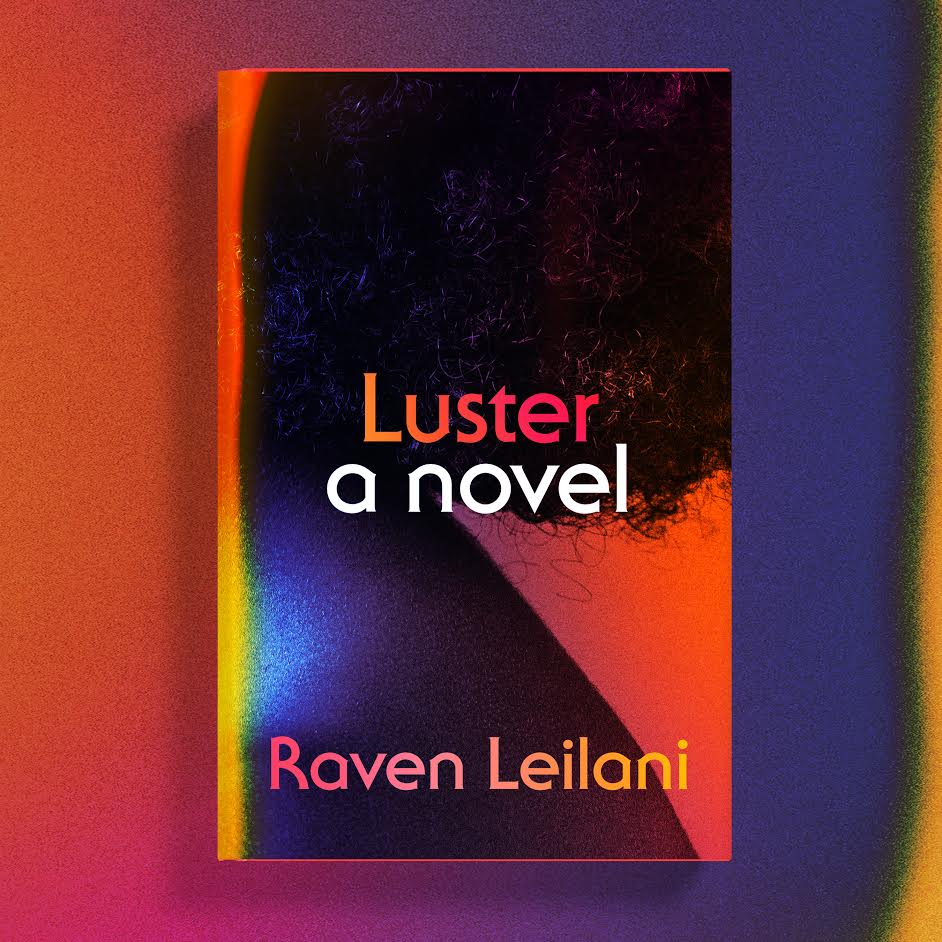
—
REVIEW BY CARISSA CHESANEK
Raven Leilani’s Luster is a smart and bold exploration of self-worth and self-appreciation wriggled from a love triangle gone strange and a sense of urgency to understand the world around us. This short book is both sexy and sad, angry but funny, with impressive literary prose that is blunt and mischievous, luring you with little intention to let go. In Luster, there are vital essences buried deep within the core, more visible as you peel back the droves of sticky layers. And once the characters and their world are slowly revealed, we find there is very little that’s different from our own. These themes and revelations allows us to understand the impact of those around us and the startling influences that make us who we become.
Edith, who goes by Edie, is a black woman in her twenties working as a managing editorial coordinator in publishing and living in a run down Brooklyn apartment with a roommate she shares very little connection. Much of Edie’s lackluster in life can be credited to the art she no longer creates, not after her last chilling portrait of her dead mother sprawled on the floor wearing only one shoe. Her desire to create is still there, but so is the distraction of sex, which she falls victim to, often tittering oversexed, and later categorized as “sexually inappropriate” in the office. Her escapades or escapes can be hard to endure with constant displays of demeaning ridicule and unsettling exploitation. With Eric, an older white man she met online, it’s no different, comparably worse with his blatant confessions of violent fantasies that lead to aggressive behavior. It’s clear that Eric and his chauvinistic demeanor dominates Edie, guiding her through this destructive manipulation of class and sex. But this story is not tired or trite, because there is also Eric’s wife, Rebecca, the master with all the rules, who takes us on an unexpected path.
Leilani shifts from past to present with assertiveness, giving us valid insight to Edie’s childhood and her relationships with men at an early age. What’s interesting about Edie is her self-awareness, her revelation of bad relationships that stem from the nonexistent one with her father: “This was the contradiction that would define me for years, my attempt to secure undiluted solitude and my swift betrayal of this effort once in the spotlight of an interested man.” We then learn of Clay, the mixed race older man who played off Edie’s innocence and grief with carefully fine-tuned tactics of a chronic abuser.
Rebecca, a medical examiner for the VA, is as interesting and complex as they come. She’s agreed to an open marriage but seems less than keen on the idea, and yet, she invites Edie to stay in the home without Eric’s knowing. There is something sinister here, the appeal of shock value toward her husband perhaps, but there’s also Akila, the adopted twelve year-old black daughter, who paves more questions into Edie’s appearance: Why is she really invited here? The prolonged uncertainty and swaying companionship between Rebecca and Evie is complicated but not all obstructive. It is because of Rebecca’s unusual hospitality that Edie has a new and inspiring space to start creating once again.
Leilani has given us a novel of our times with prevalent topics circling social movements of Me Too and Black Lives Matter. Discrimination based on gender and race are transparent with pay gaps and sexual abuse, socioeconomic status, and racial profiling. The lives of Eric and Edie are parallel in their social and economical differences which are as alarming as they are informative. We can learn when we are aware. This book paints an accurate portrait of society’s many weaknesses while also spotlights potential hope. In a world where we’re actively searching for that one great muse, often times we can find it staring back at us in the mirror.
—
Carissa Chesanek is a New York City-based writer. She holds an MFA from The New School. Her work has appeared in The Rumpus, Cagibi, BookTrib, CrimeReads, Booklist, among others. She is a non-fiction reader for Guernica magazine, a member of PEN America’s Prison Writing Committee, and volunteer at Center for Fiction.
![[PANK]](https://pankmagazine.com/wp-content/themes/pank/assets/images/pank-logo-large.png)
